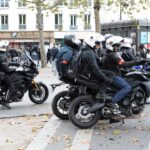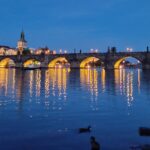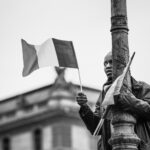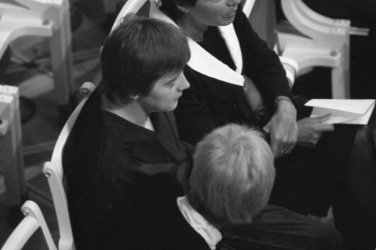In the past weeks, the situation between Kosovo and Serbia has escalated to a worrying degree. An explainer by E&M editors Sindre Langmoen and Nisa Sherifi.
On June 14th, three Kosovar police officers were possibly illegally detained or abducted by Serbian forces, in perhaps the greatest escalation between Kosovo and Serbia in recent years. Two different versions of the incident are being put forward: while Belgrade accuses the police officers of having crossed the border to commit terrorist activities, Prishtina claims the border patrol policemen were abducted in Kosovo by Serbian anti-terrorist units and special military police. According to Kosovo Prime Minister Albin Kurti, the officers were kidnapped as “revenge” for the recent arrest of a notorious criminal suspected of organising attacks against NATO peacekeepers during the recent clashes.
The latest escalation began with protests some weeks earlier, beginning on May 26, in Serb-majority North of Kosovo. 30 NATO-led KFOR troops were injured in clashes with Kosovo Serb protesters in one of the most severe peaks in tensions in recent years, with several of the soldiers suffering gunshot wounds. Protesters also attacked ethnic Albanian journalists and their cars, vandalising them with Serbian royalist and fascist symbols, as well as the “Z” in line with the massive support of the Serb population for Russia in its invasion of Ukraine. The attack on Albanian journalists comes as no surprise, as journalists from BIRN had been attacked in Mitrovica last year as well, by a masked group of Serbs. According to the director of the local hospital, 52 protesters were also injured in the clashes, including one man who reportedly suffered gunshot wounds.
The violent clashes grew out of the conflict that escalated after three ethnic Albanian, and an ethnic Bosniak, officials, who were elected due to a Serb boycott of the local elections which was likely orchestrated by Serbia, tried to enter municipal buildings to assume their official positions. As local Serbs sought to block them from doing so, and would not move to allow for the mayors to enter the municipal buildings, Kosovo police used tear gas to disperse the protesters, after which the situation devolved into violence and KFOR troops intervened.
Serbia had already announced on the first day of protests that their military would be mobilised into active readiness to protect ethnic Serbs in Kosovo, while NATO stated that they would send 700 additional troops in response to the eruption of violence.
Context: Elections & Association
The April 23 local elections in Kosovo were boycotted by the vast majority of ethnic Serbs, who represent around 5% of the total population. As a precondition to take part in the elections, Serbs demanded the establishment of an autonomous Association of Serb Municipalities (ASM) within Kosovo, as stipulated by the deal brokered by the EU in 2013 under the previous Kosovar government that sought to integrate local ethnic Serb institutions into Kosovo state structures. This has long been resisted by the government, which fears that it could further increase Belgrade’s already-strong influence among Kosovo Serbs or in the worst case, develop into an entity akin to Republika Srpska in Bosnia and Herzegovina, impeding political independence and progress in the country.
A 2015 ruling by the Constitutional Court of the Republic of Kosovo found that the elements of the deal pertaining to the ASM were not in the spirit of the constitution in their current form, notably that it could not have executive rights reserved exclusively for the central government. The court ruled that unconstitutional elements should be altered, but that the ASM should then be formed in line with the obligations from the 2013 agreement. The February 2023 deal brokered under western pressure between Kosovar Prime Minister Albin Kurti and Serbian President Aleksandr Vučić obliges Kosovo to “ensure an appropriate level of self-management for the Serbian community in Kosovo,” without detailing the shape of such self-management or the path toward implementation, and without specifically referring to the ASM.
In the four northern Serb-majority municipalities of North Mitrovicë/Mitrovica, Zubin Potok, Leposaviq/Leposavic and Zveçan/Zvečan, the participation rate did not exceed 3.47% or 1,567 out of 45,095 registered voters, with only one independent candidate from the Serbian community taking part. Voters were predominantly Albanian and the boycott resulted in three Albanians and one Bosniak mayor winning the uncontested elections in those municipalities.
The EU and US accepted the results of the elections as valid, legal, orderly and legitimate, while lamenting the boycott and later condemning Kosovo’s government’s decision to forcibly access the municipal buildings. Vučić blamed the West for “allowing” the vote to take place despite the circumstances and praised the boycott by Kosovo Serbs as “a peaceful political uprising” against their “occupiers”, echoing rhetorics used by Putin when praising Russians for fighting the war against “Ukrainian Nazis”. Meanwhile, Kurti blamed the Serbian government for the boycott, stating that “the threatening campaign orchestrated by Belgrade and executed through intimidation, pressure and blackmail by criminal groups […] led to a low turnout of citizens in the elections.”
The West Condemns & Serbia Rejoices
The U.S. strongly condemned Kosovo’s decision to use force to access the municipal buildings, and emphasised that it went counter to the EU & US advice, which was that the mayors should use other, unofficial offices, in other parts of Kosovo to do their work, indirectly asking the Kosovar Government to forsake a part of its sovereignty to appease the Serbs. “These actions have sharply and unnecessarily escalated tensions, undermining our efforts to help normalise relations between Kosovo and Serbia and will have consequences for our bilateral relations with Kosovo,” U.S. State Secretary Blinken said in a statement, calling on Kurti to reverse course.
In addition to terse words, Washington has sought to punish its closest Balkan ally, beginning by excluding them from the largest exercise of NATO allies in the Balkans, and by halting its efforts in lobbying recognition for Kosovo’s statehood internationally, the U.S. Ambassador to Kosovo stated. “We will cease all efforts to assist Kosovo in gaining recognition from states that have not recognized Kosovo and in the process of integration into international organisations,” he said. Thus far there are no punishments in sight for Serbia, even after the policemen were detained.
Such a strong reaction from Washington is no surprise – while US-Kosovo relations are overall very positive, the Kurti government’s insistence on pursuing policies that underline and protect Kosovo’s sovereignty, even if this conflicts with Western wishes, has soured the relationship. Kurti even accused the U.S. of being directly involved in toppling his first government in 2020 by a no-confidence vote – though he was reelected shortly after.
Relations had significantly strengthened since, particularly given Kurti’s acceptance of the “normalisation agreement” reached between him and Vučić in February 2023. Kurti’s cooperation in the negotiations and readiness to agree had also improved his reputation among EU officials, which previously did not like his insistence to protect Kosovo’s interests above all, while also improving Kosovo’s position in the dialogue overall.
Belgrade’s incitement of unrest in Kosovo may be a consequence of this improvement in relations: this normalisation agreement, which unlike previous agreements requires Kosovo to make far fewer concessions at the expense of its statehood and sovereignty, and which Vučić was pressured to agree to by the West, is highly unpopular in Serbia and has significantly damaged his domestic reputation, which was already shaky as waves of anti-government protests shook Belgrade in the recent weeks. As such, his government must be seen taking strong measures to “defend” the rights of Serbs in Kosovo, especially in a case where such a situation gives Vučić an excuse to postpone the adoption of the normalisation agreement.
Featured image by Adam Jones: Italian Carabinieri KFOR Contingent at Ibar River Bridge – Mitrovica (Albanian Side) – Kosovo










